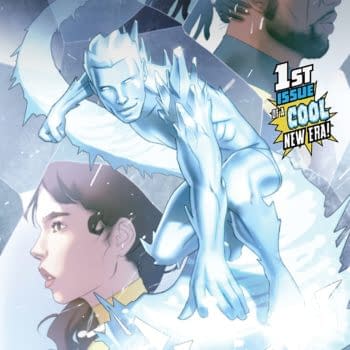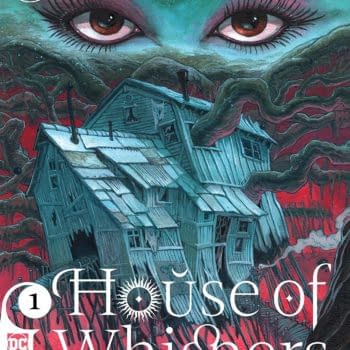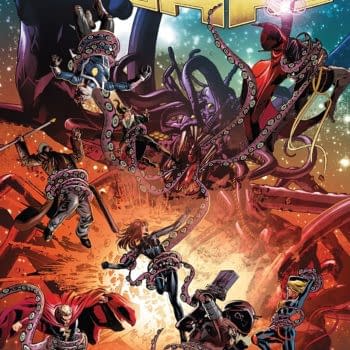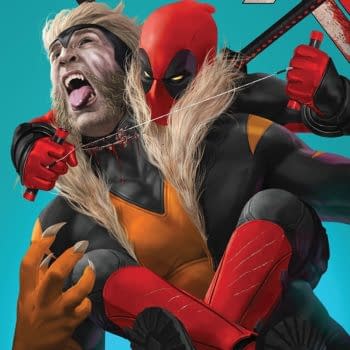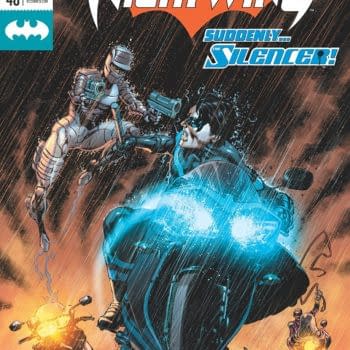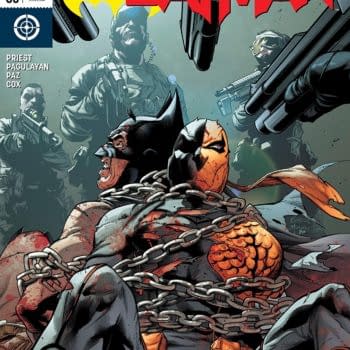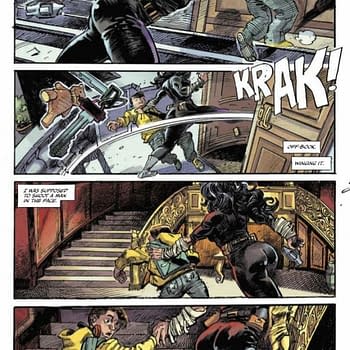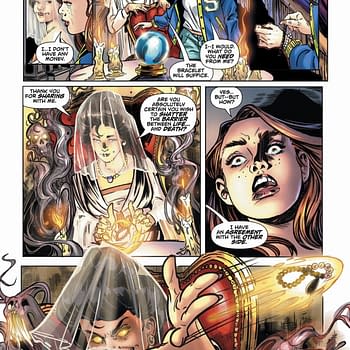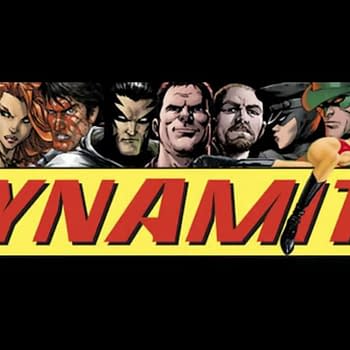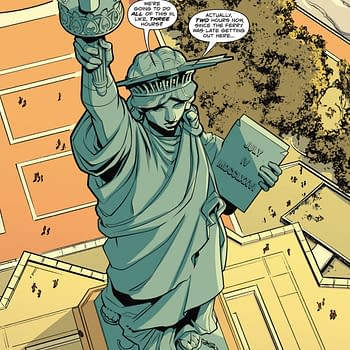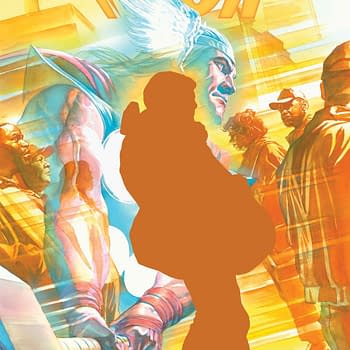Posted in: Comics, Marvel Comics | Tagged: black panther, leonard kirk, Marvel Comics, marvel legacy, shuri, Ta-Nehisi Coates, the avengers, the klaw, The Ultimates, thunderball, Wakanda
Black Panther #167 Review: A Complex If Questionable Explanation
Dr. Eliot Franklin, aka Thunderball of the Wrecking Crew, has wound up in jail once more. He receives a lifeline in the form of Shuri, who offers him a tentative task back in Wakanda. Black Panther needs his help in studying and tracking recent attempts to create synthetic Vibranium in the hopes of pinning down the Klaw's new schemes against Wakanda.
Later, T'Challa and Shuri return to the Djalia to learn more of the Originators they are currently struggling against.

As always, Ta-Nehisi Coates provides a compelling, if slow, chapter for the Black Panther. The potential redemption for Thunderball is a cool aspect. Learning more of the Originator gods is interesting. Black Panther and Shuri are ever-engaging protagonists, and the read has me absorbed almost entirely throughout.
The comic doesn't advance the Klaw or Originators plot that much, but it manages to keep things interesting through character interaction and additional backstory.
Leonard Kirk's artwork is a good addition to the series. He did exemplary work on All-New Wolverine, and he is even better on Black Panther. He plays with shadow quite well, and he is good at playing with the subtleties of human expression. Marc Deering's ink work especially stands out in how it helps emphasize the shadowing. Laura Martin and Matt Milla give some great color work too, and the comic is visually-grabbing all around.
That brings us to the explanation given for what is going on with the Originators, and that merits discussion. As such, here is your courtesy spoiler warning, and we can get started.

The Mother in the Djalia explains the backstory of the Originators, and it's oddly familiar. They claimed the land before there was even a Wakanda. They were supernatural beings with their own gods and were not human. However, they were sentient and had their own society. Then the people that would become Wakanda moved in on the territory, drawn by the Vibranium. They later began clashing with the Originators, and this led to all-out war between the two civilizations. The gods of Wakanda ascended to divinity in this war.
For anyone who has knowledge of American history, this is pretty similar to how the colonists treated Native Americans. We took advantage of them, warred with them, killed them, took everything, and then left them paltry reservations to live upon. That doesn't stop us from further exploiting them, of course.
That makes it a bit more troubling when the Mother explains to T'Challa that he must continue to fight the Originators despite the previous sins committed against them.
The colonists won their war against the Native Americans. We own the land that makes up the United States. They live on the aforementioned reservations or assimilated into our society.
Now it may be American exceptionalism to assume this was intended to be applied to the U.S, especially given that Wakanda, though fictional, is an African nation. That is a valid point, though I would argue that this is a pretty distinctive narrative, it is human nature to try to apply fictional tales to the real stories we know, and writer Ta-Nehisi Coates was born in the U.S. However, I do get that it is likely presumptuous.
It doesn't get any less sticky applying it to a vague people in Africa. Evolutionarily, life originated in Africa, so having Wakanda steal the land from a previous people's rings a bit untrue. That being said, there is not likely a person on Earth who has no ancestors who murdered another people for their land. Every nation in the world was founded by people who killed some other people and took their stuff.
This is not to say that "all people suck, so ignore historical context." That idea goes against pretty much all of my sociological views.
It just seems odd to assign a distinctly colonial narrative to an African people, even a fictional African people. The lesson of "we all have sins in our past, so let's move forward and try to improve things" isn't a bad one, but it is odd to tack on "kill the bastards" to that idea.
Long story short, this comic has some weird messages, and I don't know what the hell to make of them.
All of that English major pontificating aside, Black Panther #167 is a good and thoughtful read. The Thunderball subplot is good, and T'Challa and Shuri are great leads under Coates. The art of Kirk, Martin, and Milla is solid. Its message seems confused and muddled, and it doesn't advance the plot all that much. However, it's still an engaging read, and it is thought-provoking at the very least. I still recommend it, and you should hop on the Black Panther train.


